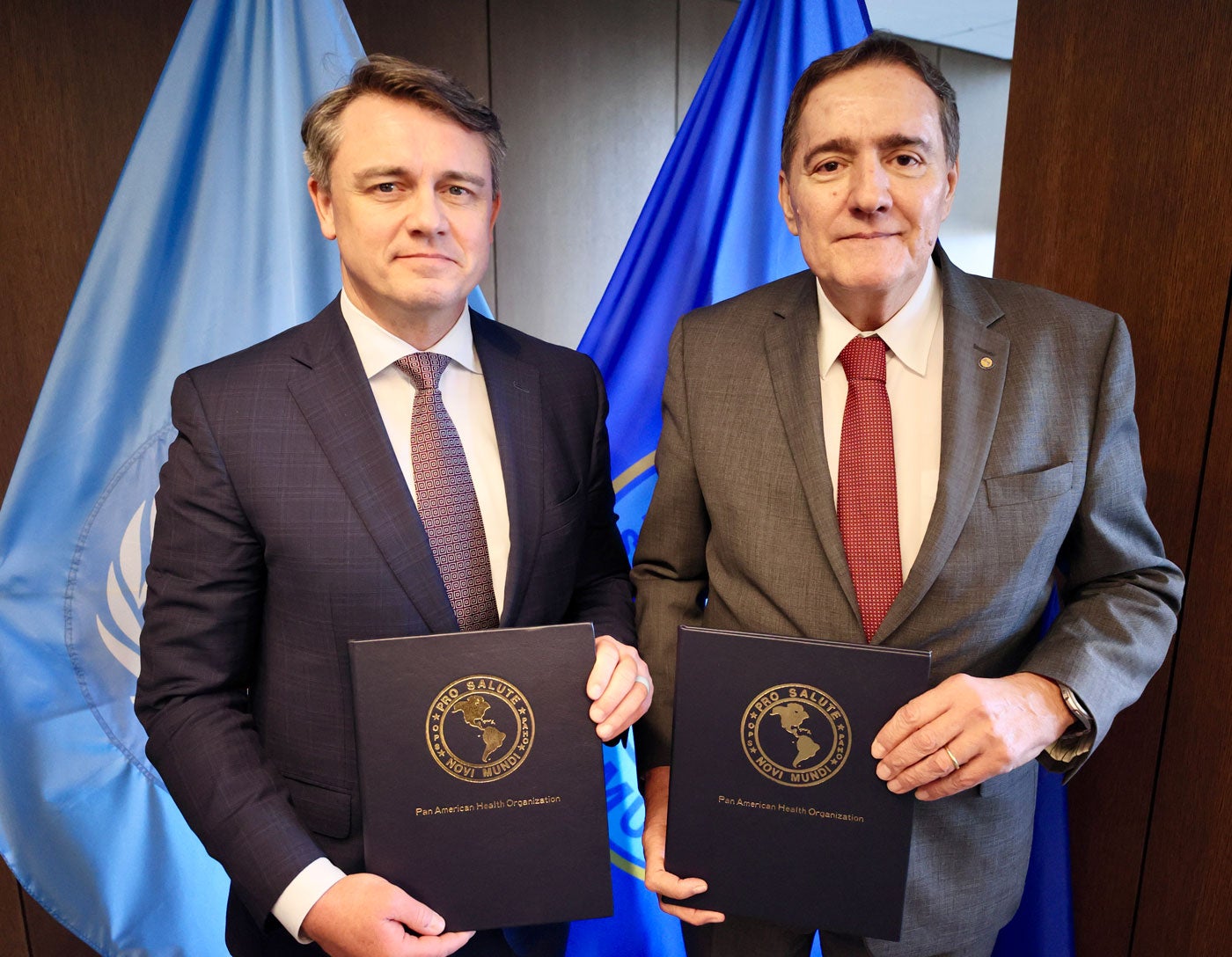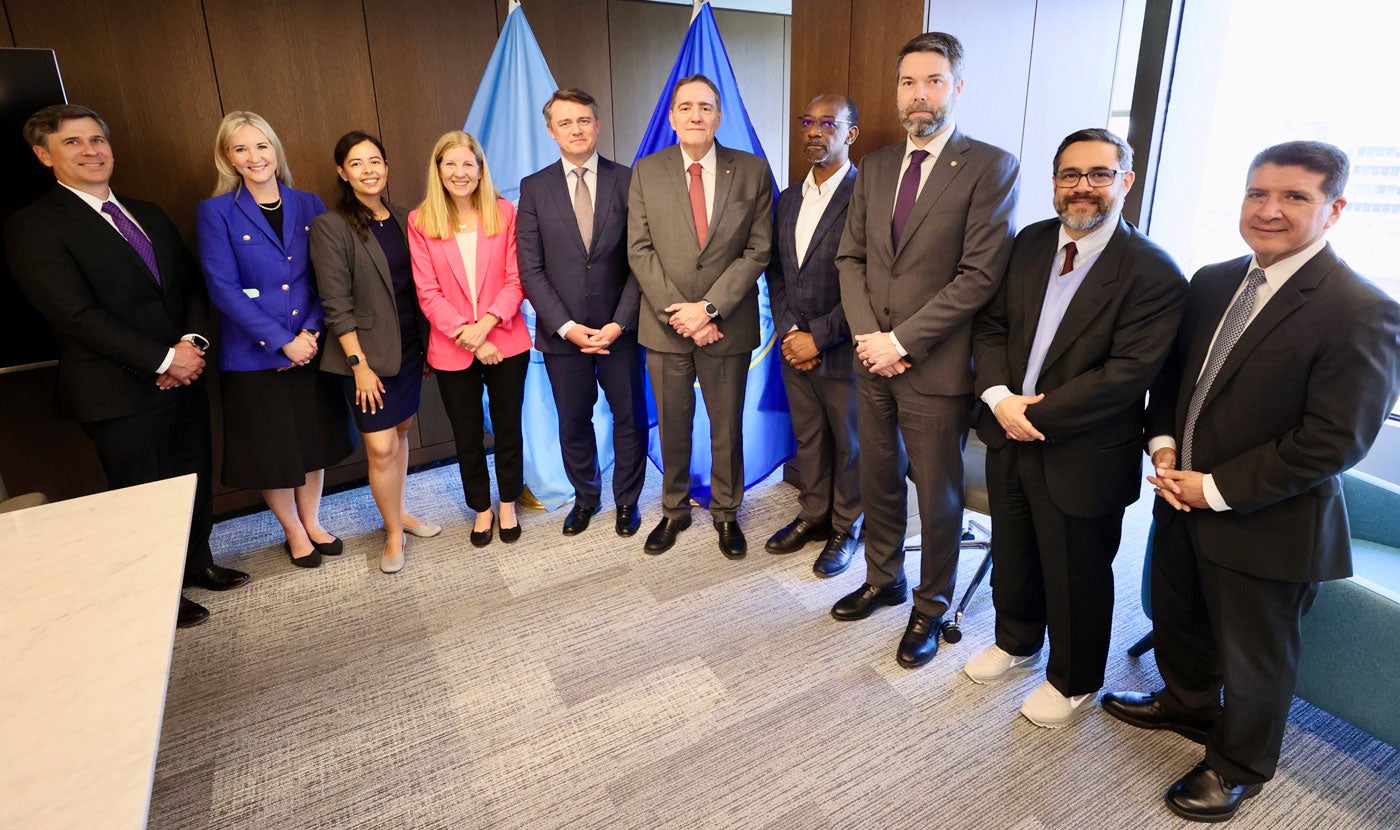
Washington, D.C. / Houston, May 1, 2024― The University of Texas MD Anderson Cancer Center and the Pan American Health Organization (PAHO) today announced the signing of an agreement to strengthen cancer prevention and control initiatives across the Americas. The event took place in Washington, D.C., with leaders from both organizations.
As part of the new agreement, MD Anderson and PAHO will work together to support the implementation of World Health Organization (WHO) cancer initiatives in the Americas, to provide technical support for the organization’s regional and country implementation and to build capacity to strengthen cancer programs in Latin America and the Caribbean. Initiatives will include the Cervical Cancer Elimination Initiative and the Global Breast Cancer Initiative.
"By advancing this important relationship with the Pan American Health Organization, we are reaffirming MD Anderson’s commitment to furthering progress in cancer prevention and control efforts around the world,” said Dr. Peter WT Pisters, president of MD Anderson. “This collaboration will help ensure more lives are saved as we work to accomplish our goal of Making Cancer History®.”
PAHO works with the countries of the Americas to improve the health and quality of life of its population. Founded in 1902, it is the world’s oldest international public health agency. PAHO serves as the WHO’s Regional Office for the Americas and is the specialized health agency of the Inter-American System.
“Over 1.5 million people are diagnosed with cancer every year in Latin America and the Caribbean. Survival can be improved with access to timely diagnosis and treatment. The joint efforts of PAHO and MD Anderson to strengthen cancer programs will contribute to closing the gap in cancer care to ensure better health outcomes for all people,” said PAHO Director Dr. Jarbas Barbosa.
The new agreement builds on existing collaboration between MD Anderson and PAHO and will strengthen their shared commitment to advancing cancer prevention and care across the Americas. Some programs include:
- Capacity building initiatives, including breast-imaging and biopsy training program for the Caribbean, alongside the International Atomic Energy Agency (IAEA).
- Cancer control efforts, including workshops to develop and advance cervical cancer elimination plans in Latin America.
- The Project ECHO® (Extension for Community Healthcare Outcomes) Latin America (ECHO-ELA) Elimination of Cervical Cancer program with the U.S. National Cancer Institute, which supports policymakers and clinical providers in the adoption and implementation of the WHO Cervical Cancer Elimination Initiative.
- Project ECHO for Mammography Quality Improvement in The Caribbean (ECHO-MIMIC), which focuses on capacity building for radiologists, technologists and physicists across 19 countries.
MD Anderson’s Strategic Plan, which calls for reaching more people and saving more lives, is advanced by aligning with others to provide expertise in cancer prevention, education, research and treatment in the community setting. Today’s announcement extends MD Anderson's commitment to this work, which includes its international collaboration to reduce the global burden of women’s cancers with the WHO and being named an IAEA Collaborating Centre.
About MD Anderson
The University of Texas MD Anderson Cancer Center in Houston ranks as one of the world's most respected centers focused on cancer patient care, research, education and prevention. The institution’s sole mission is to end cancer for patients and their families around the world, and, in 1971, it became one of the nation’s first National Cancer Institute (NCI)-designated comprehensive cancer centers. MD Anderson is No. 1 for cancer in U.S. News & World Report’s “Best Hospitals” rankings and has been named one of the nation’s top two hospitals for cancer since the rankings began in 1990. MD Anderson receives a cancer center support grant from the NCI of the National Institutes of Health (P30 CA016672).
About PAHO
PAHO works with the countries of the Americas to improve the health and quality of life of its population. Founded in 1902, it is the world’s oldest international public health agency. PAHO serves as the WHO’s Regional Office for the Americas and is the specialized health agency of the Inter-American System.





